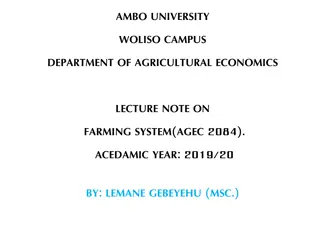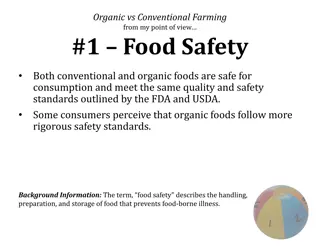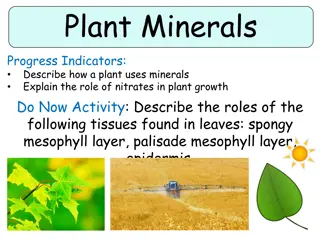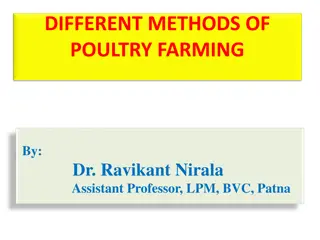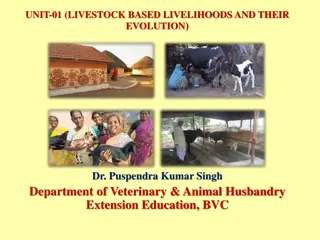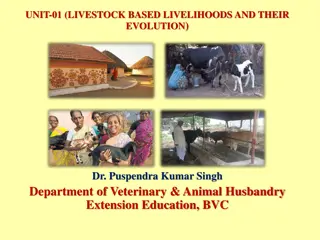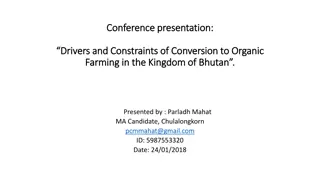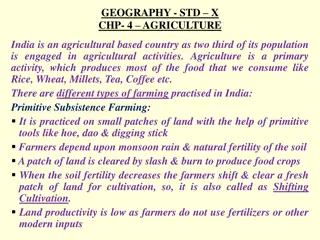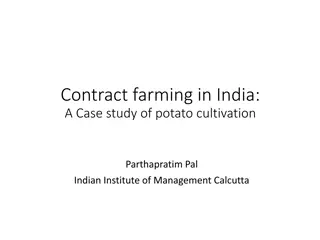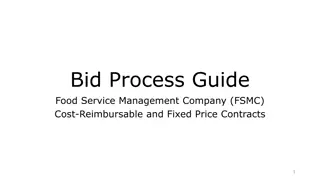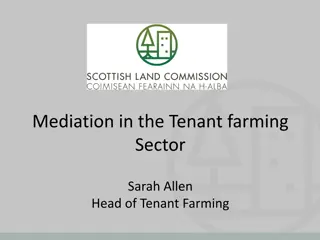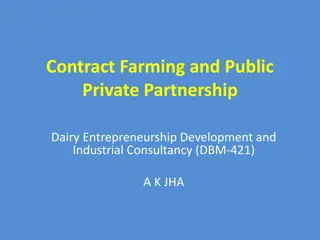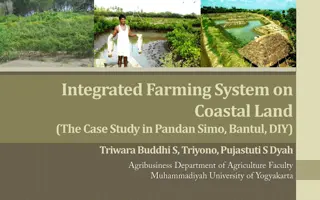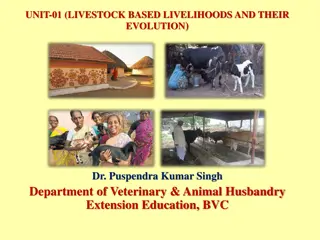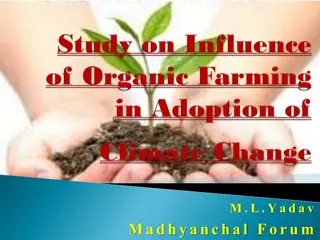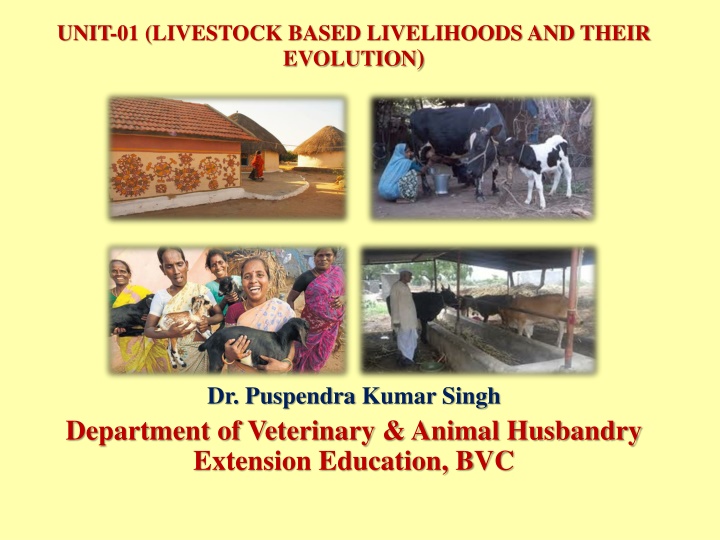
Contract Farming and Its Benefits to Livestock Farmers
Learn about contract farming in livestock-based livelihoods, where farmers and buyers enter agreements for agricultural production. Discover different business models, advantages to farmers, and how it helps in skilling, diversification, risk reduction, market access, credit availability, and consistent supply of quality produce.
Download Presentation

Please find below an Image/Link to download the presentation.
The content on the website is provided AS IS for your information and personal use only. It may not be sold, licensed, or shared on other websites without obtaining consent from the author. If you encounter any issues during the download, it is possible that the publisher has removed the file from their server.
You are allowed to download the files provided on this website for personal or commercial use, subject to the condition that they are used lawfully. All files are the property of their respective owners.
The content on the website is provided AS IS for your information and personal use only. It may not be sold, licensed, or shared on other websites without obtaining consent from the author.
E N D
Presentation Transcript
UNIT-01 (LIVESTOCK BASED LIVELIHOODS AND THEIR EVOLUTION) Dr. Puspendra Kumar Singh Department of Veterinary & Animal Husbandry Extension Education, BVC
Contract Farming Agricultural production carried out according to an agreement between a buyer and farmers, which establishes conditions for the production and marketing of a farm product or products. Typically, the farmer agrees to provide agreed quantities of a specific agricultural product.
These should meet the quality standards of the purchaser and be supplied at the time determined by the purchaser. In turn, the buyer commits to purchase the product and, in some cases, to support production through, for example, the supply of farm inputs, land preparation and the provision of technical advice.
Different business models of Contract farming 1) Informal model This model is the most transient and speculative of all contract farming models, with a risk of default by both the promoter and the farmer. However, this depends on the situation: interdependence of contract parties or long-term trustful relationships may reduce the risk of opportunistic behaviour. 2) Intermediary model In this model, the buyer subcontracts an intermediary (collector, aggregator or farmer organisation) who formally or informally contracts farmers (a combination of the centralised/ informal models). 3) Multipartite model This model can develop from the centralised or nucleus estate models. It involves various organisations such as governmental statutory bodies alongside private companies and sometimes financial institutions. 4) Centralized model In this model, the buyers involvement may vary from minimal input provision (e.g. specific varieties) to control of most production aspects (e.g. from land preparation to harvesting). This is the most common CF model.
Advantages of Contract Farming: To the farmers: It helps in skilling of farmers as they learn to use various resources efficiently like fertilizer, pesticides and get in touch with new technology in some cases. Farmers get the opportunity for diversification of crops. Price risk is drastically reduced as many contracts specify prices in advance. Contract farming can open up new markets which would otherwise have been unavailable to small farmers. The farmers can also get easy credit from the Bank under contractual agreements. In the case of agri-processing level, it ensures a consistent supply of agricultural produce with quality, at the right time and lesser cost.
To the Client: They get uninterrupted & regular flow of raw material of high quality which helps in protection from fluctuation in market pricing. Long term planning of business is possible as they have a dedicated supplier base of raw material. Concept of contract farming can be extended to other crops also which helps to generate goodwill for the organisation.
Limitations Contract farming arrangements are often criticized for being biased in favour of firms or large farmers while exploiting the poor bargaining power of small farmers. Problems faced by growers like an undue quality cut on produce by firms delayed deliveries at the factory, delayed payments, low price and pest attack on the contract crop which raised the cost of production. Contracting agreements are often verbal or informal in nature, and even written contracts often do not provide legal protection in India that may be observed in other countries. Lack of enforceability of contractual provisions can result in a breach of contracts by either party. Single Buyer Multiple Sellers (Monopsony). Adverse gender effects Women have less access to contract farming.



